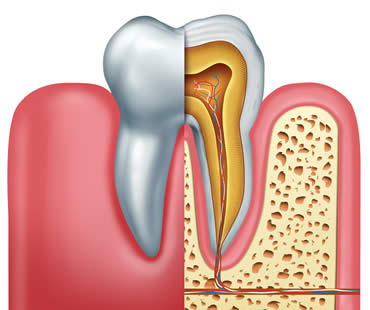
Blog, Dental Topics 2, Veneers
You may think there is nothing to be done if your smile has become unattractive due to tooth damage like chipping, discoloration, or misalignment. However, dentists offer a solution called porcelain veneers that can restore your smile and give you the confidence to show it off.
Made out of durable and natural-looking porcelain, veneers are thin shells that cover the fronts of your teeth so that imperfections are no longer visible. Problems that caused you to hide your teeth in the past will be covered up by these porcelain tops. The process for getting veneers is simple. There is no surgery or anesthesia required. Your dentist will make impressions of your teeth to enable your custom-made veneers to fit perfectly. These will be sent to a laboratory for veneer development, which can take several weeks. Your dentist may need to prepare your teeth by removing a small amount of enamel, and then the veneers will be adhered to the fronts of your teeth with a secure resin.
There are other options for handling various kinds of tooth damage, but veneers may be the simplest and most durable choice. For example, chipped teeth can be improved with dental crowns, but this can be a more invasive procedure. Yellowed teeth can be whitened with various methods, but this is not as permanent as porcelain veneers. Durability is one of the greatest benefits of veneers, because they don’t discolor and are permanently secured to your teeth. If you properly care for them with good oral hygiene, veneers can last a lifetime.
Another major selling point for veneers is that they can exactly replicate natural teeth. Your dentist will have your customized veneers created by matching the color and shape of your face and personal features. Others may not even realize you have them, other than the fact that those who knew you before will notice your beautiful new smile. So if you are unhappy with your current appearance of your teeth and want to quit being embarrassed to smile, porcelain veneers may be just what you need.
We treat patients from Gaithersburg and the surrounding area

Blog, Dental Topics 2, Root Canal Treatment
A toothache can make your life miserable. It may involve terrible tooth pain as well as headaches, sleeplessness, and difficulty eating. A trip to the dentist’s office is a must if you want relief. An examination might reveal that you need root canal treatment to save your tooth and eliminate your symptoms.
Severe tooth decay, a faulty crown, repeated tooth procedures or trauma are common causes of tooth damage. These issues can also lead to infection of your tooth’s pulp, which is on the inside of your tooth. Also called endodontic therapy, root canal treatment focuses on getting rid of the damaged tooth pulp. If infection is present, it is also removed. The root canal is thoroughly cleaned and disinfected, and then the area is filled with a special material called gutta-percha. Finally, the tooth is typically restored with a dental crown to provide maximum protection from future damage.
Some of the benefits you can expect from root canal treatment include chewing with normal biting force and sensation, maintaining natural tooth appearance, protecting other teeth from excessive wear, and avoiding a troublesome gap in the smile. In as little as one or two appointments, these benefits can be achieved without a great deal of discomfort. Innovations in technology have made the experience of root canal treatment usually no more painful or difficult than simply getting a dental filling. Once root canal treatment is complete, the tooth can last a lifetime with regular checkups and proper oral hygiene.
Schedule your appointment at our Gaithersburg dental office

Blog, Dental Topics 2, General Dentistry
Severely damaged, injured or diseased teeth can lead to not only cosmetic problems with your smile, but also functional ones. Your dentist may recommend dental crowns or dental bridges to treat your dental issues.
Dental crowns are a restorative dental therapy that covers the affected tooth completely, serving as the new outer surface of the tooth. A dental crown maintains the natural roots of a tooth and can prevent extraction. A dental bridge fills the gap left by one or more missing teeth and is affixed to bordering teeth with an anchoring crown.
Both dental crowns and dental bridges are made from a variety of materials that can be designed to match the color of your surrounding natural teeth. As opposed to removable prosthodontics such as full or partial dentures, dental crowns and bridges are permanently bonded to existing teeth or dental implants, allowing them to function and appear as natural teeth.
Dental crowns and bridges have a number of advantages and benefits, such as:
- Dental crowns protect the natural tooth after a root canal therapy, helping to prevent bacteria re-infecting the tooth that could lead to extraction.
- Dental bridges restore gapped or missing teeth, providing support to the surrounding teeth, preventing them from shifting in to fill the empty space and affecting your speech, bite and smile.
- Your dentist can typically place dental crowns and bridges in as few as two appointments.
- Dental crowns and bridges are both long-lasting, durable therapies, designed to protect your natural tooth for years to come.
- Dental crowns prevent bone loss by preserving the natural tooth roots, thereby stimulating the jawbone, preventing resorption, or shrinkage, of the bone following extraction.
If you have questions about what a dental crown or bridge can do to improve the form and function of your smile, talk to your dental professional today. You can restore your healthy smile and preserve it for years to come with a dental crown or dental bridge treatment.
We look forward to seeing you in our Gaithersburg dental office

Blog, Dental Topics 2, Dentures
If you have been living with a mouth full of badly decayed teeth, infected gums or painful tooth infections, your dentist may have talked to you about how dentures can transform your smile. While no one wants to extract all of his or her teeth and have no remaining natural teeth, if your teeth have been a source of pain and embarrassment to you for years, having a beautiful new set of dentures could sincerely change your life.
Dentures are very natural-appearing replacements for an entire mouth of missing natural teeth and gum tissue. Dentures are removable and can be cleaned thoroughly each day, unlike examples like dental crowns or dental bridges that are permanently affixed to your mouth.
Badly decayed teeth and other oral issues can lead to chronic pain that spreads from the mouth to other areas of the face, head and neck. This pain can disrupt your life, leaving you irritable and moody, causing you to isolate yourself. Pain medications can lead you to feel groggy or off-balance, affecting your interactions with others in a negative manner. Once those teeth are removed and any underlying infection is addressed, you will be shocked at how much better you feel. The absence of this once-ongoing pain will feel as though you are free of a great burden you hadn’t realized you were carrying.
Years of poor oral health might have left you unwilling to smile broadly, or to be uncomfortable in public speaking, laughing or eating and drinking. You may avoid friends and family and you might choose not to form new relationships easily. Once your damaged teeth have been removed and you have been fitted for dentures, you will be amazed at the “new you.” The bright, perfect white smile that greets you in the mirror may look like a movie star’s smile, but in fact, it’s your smile. With your new dentures, you can feel confident as you move through life.
Our dental office is located in Gaithersburg

Blog, Dental Topics 2, Dentures
If you have chosen dentures to restore the function and appearance of your mouth, you certainly want them to do their job. Typically, if fitted correctly and you follow the instructions for use and care, dentures are a good solution. However, it’s possible for problems to arise so it’s important to recognize issues and how to handle them.
One key thing about dentures is that they must fit properly. If not, problems like gum irritation, difficulty eating and speaking, mouth infections, and denture movement may occur. Also, if you don’t keep your mouth clean and healthy, problems will likely appear.
If you experience any issues with your mouth after getting dentures, see your dentist right away. It’s possible that over time, your bones and gums can change and alter the fit of your dentures. When this happens, your dentist must determine if modification, adjustment, or replacement is needed. Never try to adjust your dentures yourself.
Here are some things you can do at home to keep your dentures in good condition:
- Handle them carefully. When holding your dentures, place a towel on the counter or stand over a water-filled sink. This will protect them if you drop them.
- Keep dentures out of reach of children and pets.
- Do not sleep with your dentures in your mouth.
- Clean them daily according to your dentist’s instructions. This includes soaking them overnight in a denture cleanser, cleaning them well each morning before wearing them, and cleaning your mouth carefully before inserting the dentures. Use a soft brush or one designed for dentures, plain soap or cleanser recommended by your dentist, and warm water. Never use bleach or household cleansers.
- Store your dentures in warm water or denture cleaning solution. Do not use hot water, which can cause them to lose their shape.
- Do not use toothpicks because they can damage dentures.
Wearing dentures may be tricky at first, and it may take some time to grow accustomed to them. However, if you care for them well and see your dentist for routine checkups, you can avoid most of the problems that denture-wearers sometimes encounter.
If you need a dentist in Gaithersburg contact us today

Blog, Dental Topics 2, Kids Dentistry
In many households, the bedtime routine is no fun. One of the trickiest parts for some parents is getting their kids to brush their teeth. However, it’s not a part of your child’s routine that should be skipped. To help make taking care of their teeth fun for children, here are some ideas for parents.
Toothbrushes
Provide your kids with fun toothbrushes! By choosing a brush decorated with their favorite character or color, your children will think of their toothbrush more like a toy than a dental tool. Consider getting more than one toothbrush, so each night they can choose the one they want to “play” with at the time.
Toothpaste
Children are picky about their toothpaste flavors just like their foods. Select toothpaste that you know your kids will like. Some of the flavor options include bubble gum and fruits, as well as the standby mint.
Floss
If they start flossing at a young age, your kids will likely view it as part of their oral hygiene routine all of their life. Try using some of the fun flossing tools on the market today, because they may help get your child interested in flossing. There are many colors and shapes to choose from, so keep trying until you find one that motivates your child.
Rewards
Enticing your children with rewards is often an easy way to encourage them to perform a task without arguing. Consider making a rewards chart and giving them a sticker each time they brush and floss. By the end of a week filled with good dental hygiene, a special reward will await them!
We treat patients from Gaithersburg and the surrounding area






